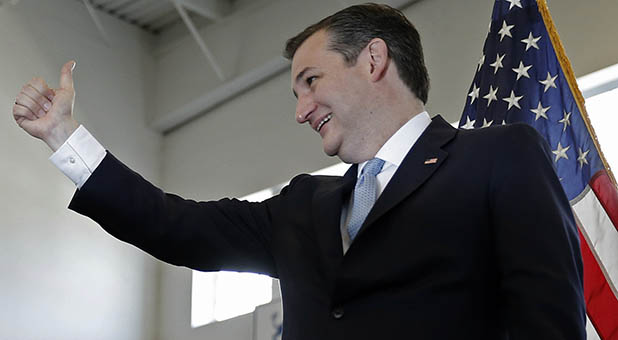New Poll Examines Impact of Faith on 2016 Election
The Public Religion Research Institute, a nonprofit, nonpartisan organization dedicated to help the general public better understand debates on public policy issues and the role of religion and values in American public life, released a new poll Thursday.
The survey offered some startling statistics. Among the most shocking was that nearly two-thirds (65 percent) of Republican front-runner Donald Trump’s supporters believe that the U.S. has gotten so far off track that it needs a leader willing to break some rules. That compared to just 40 percent of Ted Cruz supporters and 43 percent of John Kasich backers.
“As the odds of a brokered Republican convention continue to increase, the Republican establishment is reportedly planning on falling back on convention rules to block Donald Trump’s nomination, PRRI CEO Dr. Robert P. Jones said. “However, Donald Trump has mobilized the support of Americans who are not institutional players, and who are specifically looking to back a leader who is willing to break the rules—if that’s what it takes to achieve what they take to be good end goals.”
The PRRI survey included a national presidential preference poll. Among Republican and Republican-leaning voters, Trump led Cruz, 37-31, with Kasich trailing at 23 percent. The top two candidates are tied, however, among Republican and Republican-leaning white evangelical Protestants at 37 percent apiece.
Another stunning stat from the survey: Americans who are disengaged from their communities are more likely to support Trump. Republican and Republican-leaning voters who report that they seldom or never participate in community activities—such as a sports team, book club, PTA or neighborhood association—were twice as likely to support Trump (50 percent) than Cruz (24 percent).
Disengagement from church seems to be a significant factor on the Democrat side of the race. Sanders voters are more likely than Clinton voters—by a 49-28 margin—to say they seldom or never attend religious services.
“The religiously unaffiliated are emerging as a potent political force in 2016,” PRRI Research Director Dr. Dan Cox said. “Bernie Sanders leads Hillary Clinton among religiously unaffiliated Democratic voters by a substantial margin. This dynamic has shaped the nominating process, and the political potential of the unaffiliated will be an important story in the general election, as well.”
Other key findings of the survey include:
- More than two-thirds (68 percent) of Trump supporters, compared to 57 percent of Cruz supporters, say society as a whole has become too soft and effeminate. By contrast, more than 6 in 10 Clinton supporters (64 percent) and Sanders supporters (69 percent) reject this notion.
- Nearly half (45 percent) of Americans report being worried that they or someone in their family will be a victim of terrorism. These Americans report much stronger support for a leader who is willing to break the rules. About 6 in 10 (61 percent) Americans who say they are very worried about being a victim of terrorism agree that the country needs a leader who is willing to break rules to put things right.
- A majority of Americans report a dim view of their current economic health, with 37 percent saying that their financial situation is fair and 17 percent saying it is poor. However, Trump supporters do not report being in worse financial shape than Americans overall—which seems to contradict many expert analysis of the GOP front-runner’s political rise—with about half saying they are in excellent (12 percent) or good (34 percent) financial shape.
The nationwide survey of 2,033 adults was conducted in partnership with The Atlantic between March 30 and April 3. The margin of error for the survey is 2.5 percentage points.















































